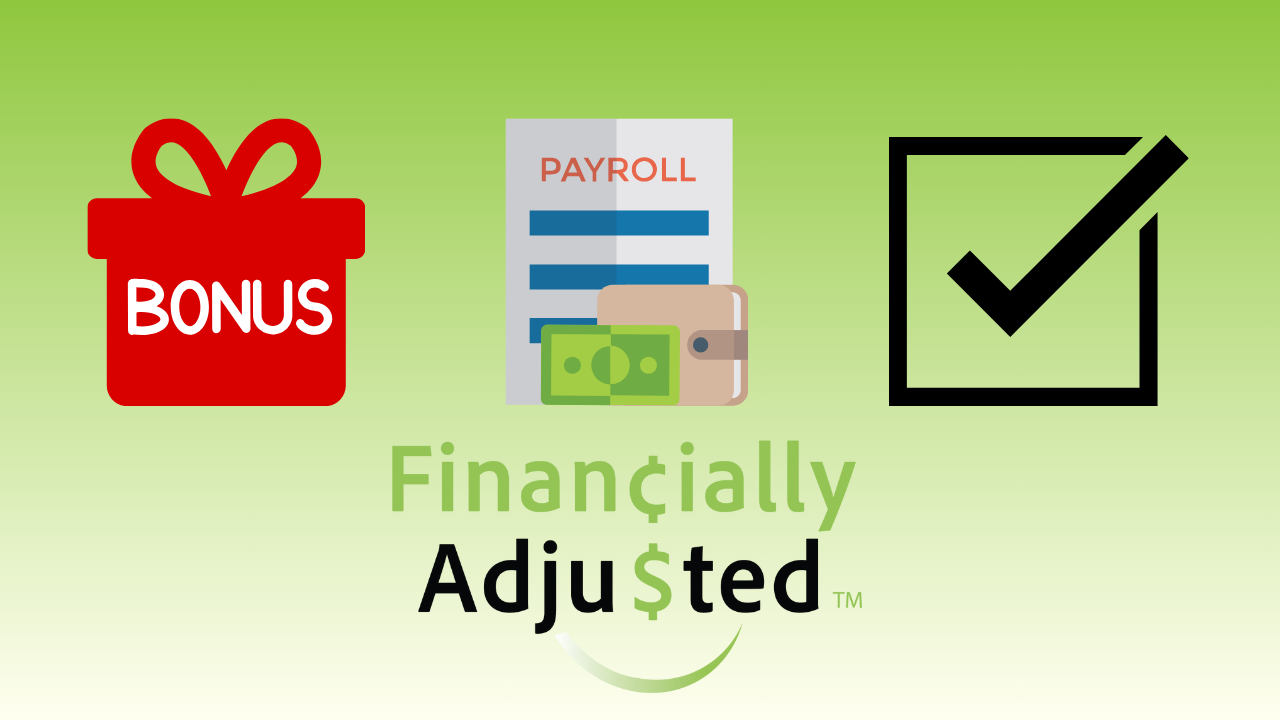How to Properly Pay Employee Bonuses
Dec 12, 2024
Before diving into the details of bonuses, let’s clarify the difference between W2 employees and 1099 contractors:
- W2 Employee: This is someone on your payroll. You pay them a regular wage, and taxes (such as Social Security, Medicare, and federal and state income taxes) are withheld from their paycheck. They receive a W2 form at the end of the year summarizing their income and taxes withheld.
- 1099 Contractor: This is an independent contractor who is self-employed. You pay them for specific services they provide, but you do not withhold taxes from their payments. They are responsible for reporting and paying their own taxes. You provide them with a 1099-NEC form at the end of the year if you’ve paid them $600 or more.
The way you handle bonuses for these two classifications is very different—and it’s essential to get it right to stay compliant with IRS rules.
Paying Bonuses to W2 Employees
If you have W2 employees and you want to give them a bonus, here’s what you need to know:
- Run Bonuses Through Payroll:
Bonuses for W2 employees must be processed through your payroll system. You can’t simply write them a check or give them cash. The bonus needs to be reported as taxable income, and payroll taxes (like Social Security and Medicare) must be withheld. - Use the ‘Bonus’ Category in Payroll:
Most payroll processing systems (such as Gusto, ADP, or QuickBooks) have a specific section for entering bonuses. When you run payroll, input the bonus amount into this category to ensure the taxes are handled correctly. This keeps everything clear and compliant. - Gift Cards and Cash Still Count:
Even if you give a gift card or cash instead of a traditional bonus, it’s still considered taxable income by the IRS. This means you must report it and withhold the appropriate taxes. There’s no loophole here—skipping this step can lead to problems if you’re audited. - Communicate with Your Employees:
If you’ve previously given employees checks for the full bonus amount, switching to processing bonuses through payroll might surprise them. Be transparent and let them know: - “Hey, from now on, I’m running your bonuses through payroll, so you’ll see it show up on your paycheck instead of getting a separate check.”
- Grossing Up Bonuses:
To ensure your employees take home the intended amount after taxes, consider “grossing up” their bonuses. For example, if you want them to receive $100, you might pay $125 or $150 to cover the taxes. - Consult Your Payroll Provider:
If you’re unsure how to enter bonuses in your payroll system, reach out to customer support. Most platforms have easy-to-follow dashboards and helpful support teams ready to guide you.
Paying Bonuses to 1099 Contractors
If you work with 1099 contractors, paying them a bonus is handled differently:
- Pay Them as Usual:
A bonus for a 1099 contractor should be paid the same way you normally pay them—whether it’s via check, ACH transfer, or through your payroll system (if it supports contractor payments). - Document the Reason for the Bonus:
It’s a good idea to outline in your agreement or payment memo that the bonus is for services rendered. - Include the Bonus in their 1099:
At the end of the year, any bonuses you’ve paid to contractors should be included in their total compensation on the 1099 form you issue. This ensures they report the correct income on their taxes. - Contractors Handle Their Own Taxes:
Since 1099 contractors are self-employed, they are responsible for paying taxes on the bonuses they receive. Your responsibility is to issue the 1099 correctly.
Why This Matters:
You might be wondering, “Why all this fuss about bonuses?” The IRS has strict rules about employee classification and taxable income. Misclassifying payments or failing to withhold taxes can lead to:
- Penalties and Fines: The IRS may penalize you for not withholding taxes correctly.
- Audits: Incorrect handling of employee bonuses can flag your business for an audit.
- Frustration and Confusion: Your employees or contractors could end up owing unexpected taxes, leading to dissatisfaction and mistrust.
By following the correct procedures, you can reward your team and protect your business.
